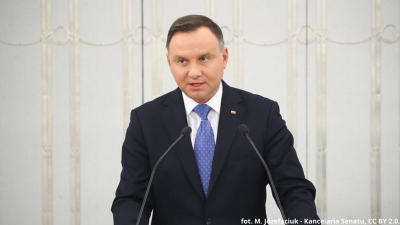
The HFHR has submitted a legal opinion on the government’s draft law amending the Medicines Reimbursement Act. The Foundation noted that the proposed regulation may disproportionately limit constitutional right to protection of a person’s life and health.
The draft authorises the President of the National Health Fund to appoint special coordination teams, which will be authorised to decide on patients’ eligibility to take part in drug treatment programmes that involve the use of reimbursable medicines and exclude a patient from such a programme.
Such coordination teams have already been set up for some – usually very expensive – medicines. However, the only legal basis for the teams’ operation is reimbursement decisions issued for some drugs and Minister of Health’s notices issued as appendices to such decisions, which do not have the rank of a statute. Teams’ decisions frequently area a matter of life or death for patients because for them a drug treatment programme is the only way of obtaining a given medicine at a preferential price. On the other hand, a purchase of medicines at non-reimbursed prices is, in many cases, completely unfeasible as their cost may even exceed a million zloty a year. That is why it is extremely important that the eligibility and exclusion decisions are taken in an objective and transparent manner.
“The HFHR took on a case of a young man, who suffered from an ultra rare disease. For several years, he had been treated as part of a drug treatment programme but a coordination team decided he was no longer able to receive treatment. Importantly, this decision was contested not only by the patient’s parents but also by his doctors. Unfortunately, the current law does not provide for any possibility of appeal against the team’s decision. Finally, the patient who was denied access to the medicine died”, says Katarzyna Wiśniewska, a member of the Foundation’s legal team.
The draft amendment to the Reimbursement Act introduces a provision that would be a legal basis for the appointment of coordination teams. “Unfortunately, the provision is too laconic to meet constitutional standards. It does not regulate even such key issues as the teams’ composition, basic rules of proceedings, appellate remedies or the way of determining a drug treatment programme’s criteria for eligibility and exclusion”, Marcin Szwed, a lawyer working for the HFHR, explains.
The Foundation also pointed out that the operation of coordination teams may lead to an excessive limitation of the right to protection of health. Such teams are to be appointed by the President of the NHF, which may affect their objectivity as there is the risk that in some cases financial considerations may prevail over the best interests of patients. Furthermore, patients will have no means to request a review of the team’s decision.
“The very idea that quasi-administrative body may control decisions of doctors directly managing a patient’s treatment, who know best the patient’s health condition, raises significant doubts. It is worth noting that this was precisely the reason for the critical comments voiced by the Polish Chamber of Physicians about earlier legislative attempts at establishing a legal framework for coordination teams”, Mr Szwed adds.


